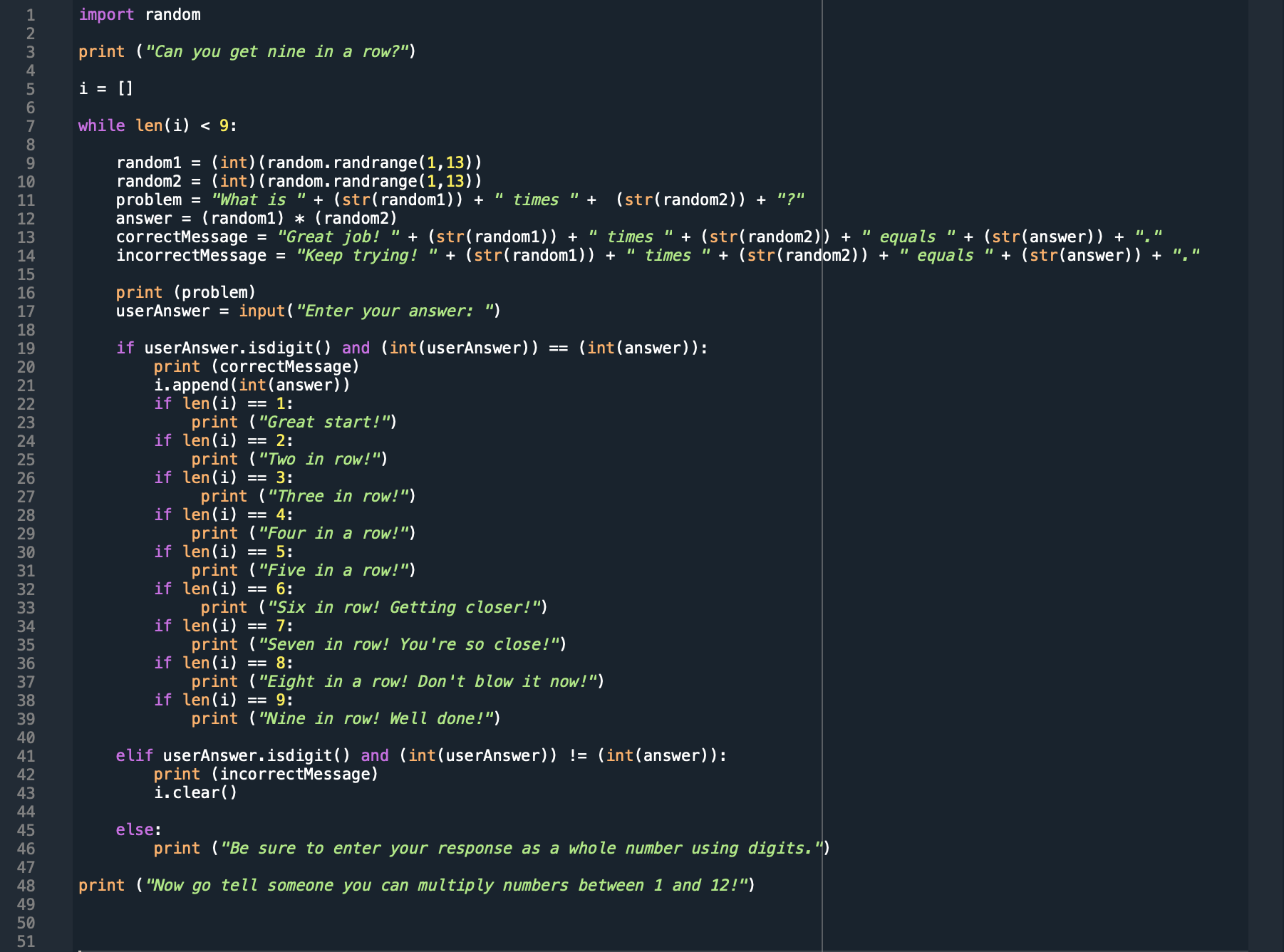Multiplication App Code

Notes on the code
To shorten the code and eliminate the need for so many "if" statements, use a "while" statement that continues as long as the number correct is less than nine.
Code to copy
import random
print ("Can you get nine in a row?")
i = []
while len(i) < 9:
random1 = (int)(random.randrange(1,13))
random2 = (int)(random.randrange(1,13))
problem = "What is " + (str(random1)) + " times " + (str(random2)) + "?"
answer = (random1) * (random2)
correctMessage = "Great job! " + (str(random1)) + " times " + (str(random2)) + " equals " + (str(answer)) + "."
incorrectMessage = "Keep trying! " + (str(random1)) + " times " + (str(random2)) + " equals " + (str(answer)) + "."
print (problem)
userAnswer = input("Enter your answer: ")
if userAnswer.isdigit() and (int(userAnswer)) == (int(answer)):
print (correctMessage)
i.append(int(answer))
if len(i) == 1:
print ("Great start!")
if len(i) == 2:
print ("Two in row!")
if len(i) == 3:
print ("Three in row!")
if len(i) == 4:
print ("Four in a row!")
if len(i) == 5:
print ("Five in a row!")
if len(i) == 6:
print ("Six in row! Getting closer!")
if len(i) == 7:
print ("Seven in row! You're so close!")
if len(i) == 8:
print ("Eight in a row! Don't blow it now!")
if len(i) == 9:
print ("Nine in row! Well done!")
elif userAnswer.isdigit() and (int(userAnswer)) != (int(answer)):
print (incorrectMessage)
i.clear()
else:
print ("Be sure to enter your response as a whole number using digits.")
print ("Now go tell someone you can multiply numbers between 1 and 12!")
Link to download
Click multiplication.py to download the file. (The download does not appear to work in Chrome).